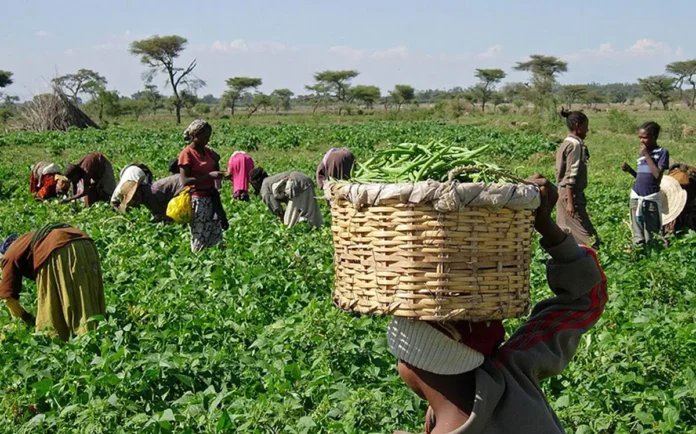The Federal Government is calling for full support of its National Agricultural Technology and Innovation Policy (NATIP), which it says will accelerate Nigeria’s agricultural ecosystem, improve access to modern inputs, and make farming more attractive and rewarding, especially for young people and women.
Minister of Agriculture and Food Security, Senator Abubakar Kyari, stated this at a High-Level Policy Dialogue hosted by the African Development Bank in Abuja. The event, titled “Bridging the Gap, Access to Finance, Empowering Youth and Women for Agribusiness Success,” focused on strategic reforms to transform the sector.
Kyari explained that NATIP provides the policy backbone to turn agriculture into a tech-enabled, youth-driven sector that promotes mechanization, digital farming, and research commercialization. “With NATIP, we are building a system that supports youth innovation, unlocks productivity, and rewards ambition. We must now ensure it delivers at scale.”
The minister also highlighted the government’s recently launched National Agribusiness Policy Mechanism (NAPM), which is being implemented under the Presidential Food Systems Coordination Unit (PFSCU). He emphasized the need to set clear delivery expectations for these reforms, including annual lending targets for youth and women-led agribusinesses.
“That means designing guarantees to expand access—not inflate fees. It means financing cash flows, not just collateral. And it means equipping entrepreneurs not only with credit but with the capabilities to absorb and grow that capital,” Kyari added.
According to a statement from the ministry’s assistant director of information, Ezeaja Ikemefuna, the initiative is already gaining ground across several states, reaching about 250,000 farmers—a positive sign of what the framework can achieve with political will and strong coordination.
Kyari noted that President Bola Ahmed Tinubu’s “Renewed Hope Agenda” places food security and job creation as interdependent levers for national resilience. “Food sovereignty means reclaiming control over food systems, reducing reliance on imports, and investing in the strength of Nigerian farmers, processors, and agribusinesses as the foundation of national resilience,” he said.
The minister also revealed that the president has approved a ₦1.5 trillion ($1 billion) recapitalization of the Bank of Agriculture (BOA), the most significant boost to agricultural finance in Nigeria’s history. This move will reposition BOA as a dynamic development finance institution that specifically targets youth and women-led agribusinesses.

